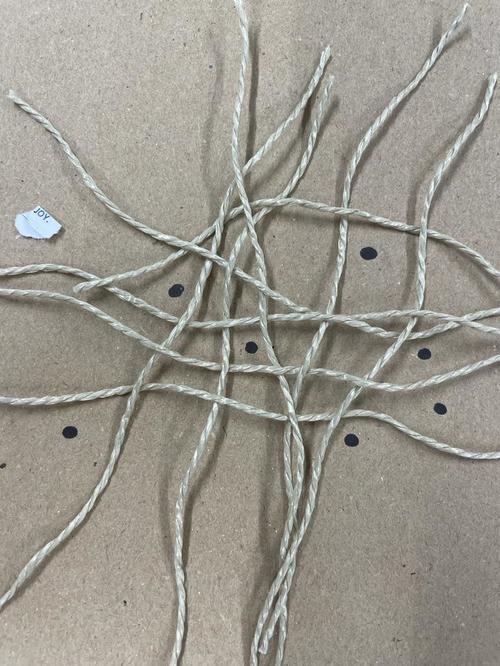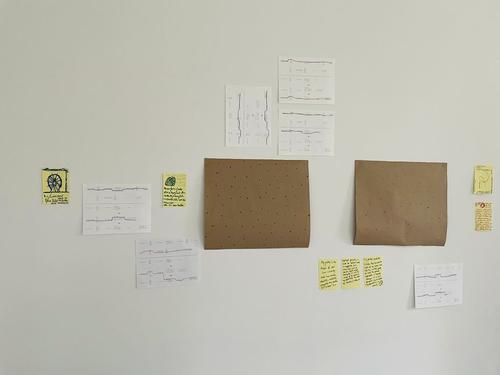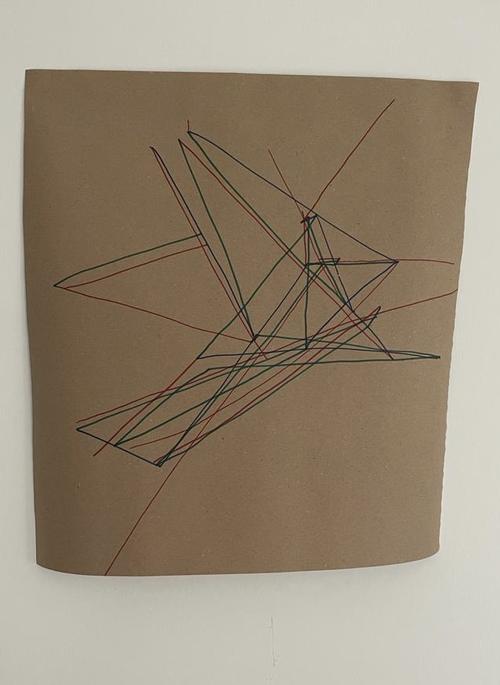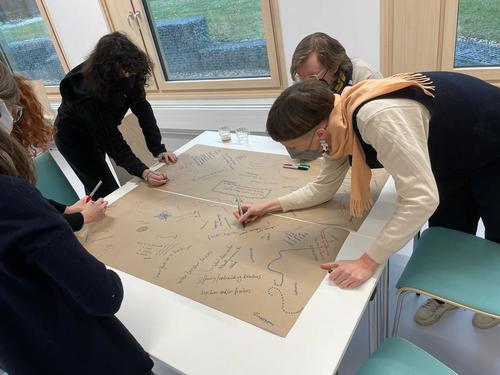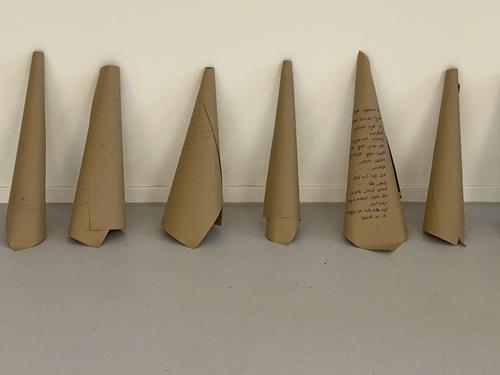Translating Borders, Transitions in Practice
Research and development workshop, Dec 19-20, 2022
Workshop: Translating Borders, Transitions in Practice (2022), untitled image
Image Credit: courtesy of the artists
Workshop: Translating Borders, Transitions in Practice (2022), untitled image
Image Credit: courtesy of the artists
Workshop: Translating Borders, Transitions in Practice (2022), untitled image
Image Credit: courtesy of the artists
Workshop: Translating Borders, Transitions in Practice (2022), untitled image
Image Credit: courtesy of the artists
Workshop: Translating Borders, Transitions in Practice (2022), untitled image
Image Credit: courtesy of the artists
For this two-day research and development workshop, Yael Ort-Dinoor (designer, educator, farmer) and EXC Dorothea Schlegel Artist-in-Residence Sophie Seita invited other artists, writers, thinkers, and practitioners, into their experimental collaborative project around alternative models for art education and interdisciplinary practice in precarious times.
They are currently developing ›Translating Borders‹ as a one-week intensive learning and making space to be held in summer 2023, in collaboration with Rupert (a public art institution and alternative education programme in Vilnius, Lithuania) for and with international artists, writers, musicians, designers, who are curious about other ways of thinking about how their practice (be it artistic or non-artistic or something in between) can offer forms of empowerment. Since the pandemic, the artists have been drawn to transferential and nomadic ways of thinking and making. Rethinking art institutions, expanding how and where learning takes place, as well as on who has access to communal knowledge, Translating Borders will offer an inter-disciplinary experience at the intersection of writing, design, performance, publishing, and activism. The retreat will seek to activate ideas of translation and borders through rhizomatic ways of connecting somatic, written, and visual practices.
In the R&D workshop at FU Berlin, participants explored methods of translation as movement across borders and media to reflect on issues of place, migration, and belonging.
The project borrowed from non-art practices, discourses, and rituals (gardening, farming, medicinal histories, migration stories, environmental care); and introduced artistic interventions to investigate and reimagine artistic practice through, for example, walking, mapping, journaling, DIY publishing, and dance. Through collective conversations, participants created an engaged knowledge community rooted in cross-cultural and embodied making, sharing, and listening.
The workshop was structured around non-hierarchical conversation and various collaborative and solo activities. Activities ranged from movement (inspired by Gaga and other somatic dance practices); exercises and techniques drawn from social practice and community-oriented practice (such as various games thinking about building solidarity, collectivity, trust); performance scores; tasks inspired by Conditional Design; and map-making; a sensory walk inspired by critical walking methodologies, and collective and solo writing tasks.
The final creative output was a collaborative piece of writing to be published by Other Forms in spring 2023.
